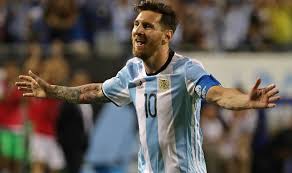September 2 – Argentine football is back: the domestic league has resumed and the national team defeated Uruguay 1-0 in World Cup qualifying; but the state of the Argentine FA, the AFA, remains precarious.
For decades, the AFA had been the personal fiefdom of Julio Grondona, a FIFA bigwig and an unscrupulous football official. Last December, the presidential elections between Luis Segura and Marcelo Tinelli ended in a farcical 38-38 tie.
Domestic football in the country had found itself trapped between a FIFA-led normalisation committee, the big clubs, the small clubs, the players and television broadcasters. The causes for the crisis were not just Lionel Messi’s sudden retirement in June and Grondona’s misdeeds, but also the repercussions from the FIFA corruption case and President Mauricio Macri’s refusal to write the same blank cheques for television rights that his predecessor Cristina Kirchner did.
For 89 days, the domestic league, the Primera, was out of action, but the league returned to action last week with Sarmiento beating Arsenal 1-0. Earlier this year, the big clubs, led by Buenos Aires giants Boca Juniors and River Plate, had threatened to breakaway and form a new super league.
Belgrano president Armando Perez, who led the normalisation committee, forced the breakthrough after he mediated between the topflight clubs and the Ascenco (lower division) clubs to conjure up a cash share-out formula. The lower-league clubs will receive monthly handouts ranging from £75,000 in B Nacional down to £4,000 in Primera D.
The AFA still remains technically insolvent because it stands as guarantor for the millions of dollars of debt owed by the clubs. The forthcoming election of a new president may steer the rudderless organisation in a new direction.
Under the Futbol Para Todos programme set up by Grondona and the Kirchner government, the government paid the TV rights market rate. The clubs were then supposed to use that income to pay their debts, but rather than settle their debt they took the cash and squandered it.
At national team level, Argentina were also in crisis. After scooping his penalty shot high into the New Jersey air in the Copa America final in June, Lionel Messi had faced a painful déjà vu: another final lost in the shoot-out. The defeat in that once-in-a-life-defining game, the game to end a 23-year drought, spurred him into an emotional and rash decision to retire.
Argentina went with a squad cobbled together under youth coach Julio Olarticoechea to Rio 2016 and crashed out unceremoniously in the first round, collecting four points in a group with Portugal, Honduras and Algeria. The Hondurans edged them for second place. Two days later, Messi announced his return to the national team.
Yesterday the diminutive Argentinian led the line against Uruguay in World Cup qualifying. It was also the debut of new coach Edgardo Bauza. The AFA had Marcelo Bielsa and Jorge Sampaoli on top of their wish-list. Messi scored the only goal of the game, enough to ensure Argentina sit top of the South American World Cup qualifying table with 14 points.
For now, the crisis in Argentine football has been somewhat abated.
Contact the writer of this story at moc.l1714871755labto1714871755ofdlr1714871755owedi1714871755sni@i1714871755tnuk.1714871755ardni1714871755mas1714871755

